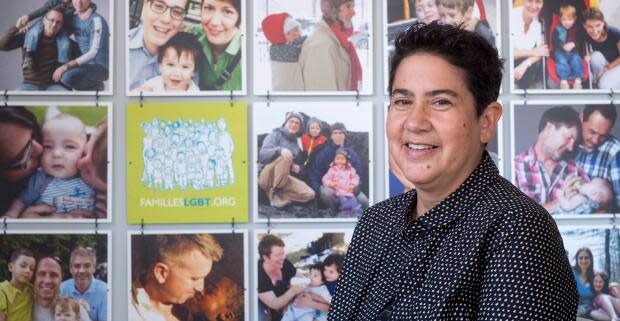Requiring trans people to have surgery to change their legal documents is 'regressive' says Quebec MNA

As the father of a transgender child, Mike Lumsden says he's worried a newly proposed Quebec law will open the door to further discrimination against the trans community.
Since 2015, Quebecers have been able to change their sex designation on their identity documents without having to undergo surgery, but Bill 2 would change that.
The bill was brought forward by Quebec Justice Minister Simon Jolin-Barrette last Thursday. It proposes changes to the province's family law, including the possibility of having separate sex and gender indications on government ID.
But the bill would prevent Quebecers from changing the sex designation on their official documents until after they've undergone gender confirmation surgery.
"I want my child to have autonomy. I want my child to have respect and equality," said Lumsden.
"So when I see this proposed bill, I feel like this is a step backwards on those fronts."
In a statement released Saturday, Quebec's Liberal Party also called Bill 2 a step backwards, saying it could make transgender people in Quebec feel pressured and obligated to undergo surgery.
The official opposition's spokesperson for the LGBTQ2 community, MNA Jennifer Maccarone, said the bill is "a regressive change" and "contrary to the rights to equality, dignity and personal integrity."
Justice Minister Jolin-Barrette says the change was proposed in response to a recent court ruling which allows people to change their sex on official documents.
He says Bill 2 would give people more options to self-identify on official documents.
Mona Greenbaum, the executive director of the LGBTIQ+ Family Coalition, says the bill could expose transgender people to discrimination and force some to reveal information they're not ready to share.
"A trans woman who hasn't had surgery will still have an M for her sex and an F for her gender on her legal documents," said Greenbaum.
"What that does is it puts that person in danger. You have a document that says you were born an M, but you became an F and you have to show that document to other people.
"It obliges you to make do with coming out, whether you want to or not."

Greenbaum says transphobia is still present in Quebec and Canadian society and also notes that the new policy for Quebec ID could put trans people in uncomfortable positions while travelling.
"Transgender people do face discrimination in society. So if you're marked with your ID, if you're marked in how you have to interact with institutions, that could lead to discrimination," added Lumsden.
Several members of Quebec's trans and non-binary community told Radio-Canada the bill is transphobic and said they need to be consulted on these types of changes.
Unless the government retracts the proposal, Groups like Trans Estrie and the Centre for Gender Advocacy say there could be legal challenges to the bill on the grounds that it doesn't respect equality rights and privacy laws.
Before the bill can be passed into law it will be studied in a parliamentary committee and the government will hold public hearings where Quebecers will be able to weigh in on the proposed changes.

 Yahoo Movies
Yahoo Movies 
